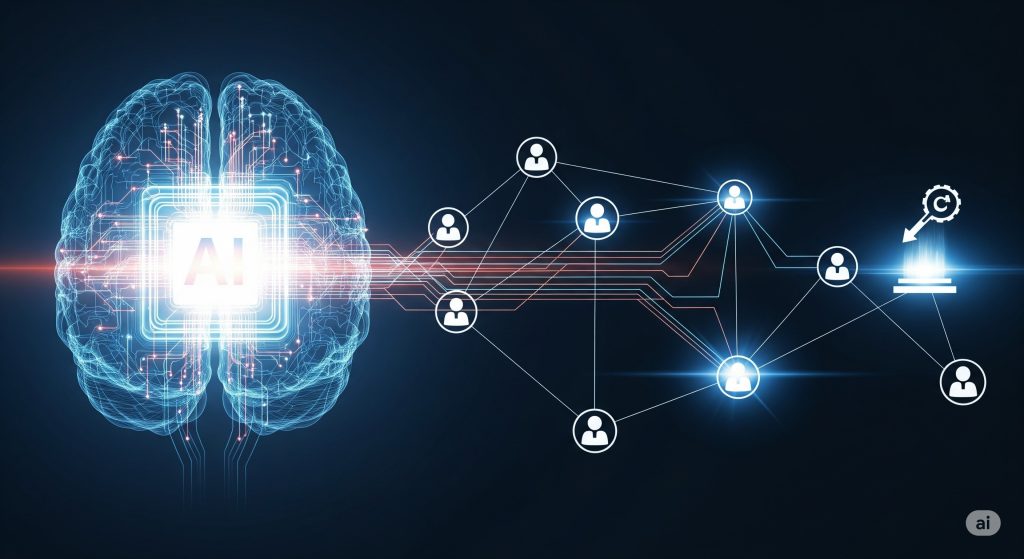Did you know that AI solutions can reduce clinic wait times by up to 30%? In an era where patient experience is paramount, the integration of artificial intelligence in healthcare is transforming how clinics operate. By automating tasks like appointment scheduling and handling frequently asked questions, AI not only streamlines processes but also allows healthcare professionals to focus on what truly matters—patient care. In this blog, we’ll explore the significant impact of AI on reducing wait times, share real-world examples, and discuss the future of AI in healthcare. Stay tuned to discover how these innovations can enhance your clinic experience!
Introduction to AI in Healthcare
Long wait times in clinics are a significant pain point for both patients and healthcare providers. These delays can lead to patient dissatisfaction, increased stress, and even missed appointments. For clinics, long wait times can result in operational inefficiencies and a negative impact on their reputation. Addressing this issue is crucial for enhancing patient satisfaction and improving healthcare efficiency.
How AI Solutions Can Help
AI solutions are at the forefront of transforming clinic management by addressing the root causes of long wait times. By automating routine tasks, AI allows healthcare professionals to focus more on patient care rather than administrative duties. This shift not only streamlines operations but also enhances the overall patient experience.
AI for FAQ Handling
One of the most time-consuming tasks in clinics is handling frequently asked questions (FAQs). Patients often have queries about clinic hours, services offered, or insurance policies. AI-powered chatbots can efficiently manage these inquiries, providing instant responses and freeing up staff to focus on more complex tasks. This automation reduces the burden on clinic staff and ensures that patients receive timely and accurate information.
AI for Appointment Scheduling
Appointment scheduling is another area where AI can significantly reduce wait times. Traditional scheduling methods often lead to overbooking or underutilization of resources. AI-driven systems can analyze patterns and optimize scheduling to ensure that clinics operate at maximum efficiency. By predicting no-shows and adjusting schedules accordingly, AI helps in minimizing gaps and reducing patient wait times.
Real-World Examples of AI in Clinics
Several clinics have successfully implemented AI solutions to enhance their operations. For instance, a clinic in California reported a 25% reduction in wait times after integrating an AI-powered scheduling system. Another healthcare provider in New York utilized AI chatbots to handle patient inquiries, resulting in a 40% decrease in call volume to their front desk.
These examples highlight the tangible benefits of AI in healthcare, showcasing how technology can lead to significant improvements in clinic management and patient satisfaction.
Benefits of AI in Reducing Wait Times
The benefits of AI in reducing clinic wait times are manifold:
- Increased Efficiency: By automating routine tasks, clinics can operate more smoothly and efficiently.
- Enhanced Patient Satisfaction: Reduced wait times lead to happier patients who are more likely to return and recommend the clinic to others.
- Improved Resource Utilization: AI helps in optimizing schedules and resource allocation, ensuring that clinics are neither overbooked nor underutilized.
Challenges and Considerations
While AI offers numerous benefits, there are challenges and considerations to keep in mind. Implementing AI solutions requires an initial investment in technology and training. Additionally, there may be concerns about data privacy and security, as AI systems often handle sensitive patient information. Clinics must ensure that they comply with regulations and maintain robust security measures to protect patient data.
Future of AI in Healthcare
The future of AI in healthcare is promising, with ongoing advancements expected to bring even more innovative solutions to the industry. As AI technology continues to evolve, it will likely play an increasingly vital role in addressing common challenges faced by clinics today. From predictive analytics to personalized patient care, the potential applications of AI in healthcare are vast and varied.
Conclusion and Call to Action
As we’ve explored, AI is revolutionizing healthcare by significantly reducing clinic wait times and enhancing patient experiences. By automating tasks like appointment scheduling and FAQ handling, clinics can operate more efficiently and focus on delivering quality care. While challenges such as data privacy and initial investment exist, the benefits far outweigh them. As AI technology continues to evolve, it promises to further transform healthcare, paving the way for innovative solutions. Embrace these advancements and consider how AI can enhance your clinic experience. Share your thoughts or experiences with AI in healthcare in the comments below!
FAQs
- How does AI reduce clinic wait times?
AI reduces wait times by automating tasks like appointment scheduling and FAQ handling, allowing clinics to operate more efficiently.
- What are the benefits of using AI in healthcare?
Benefits include increased efficiency, enhanced patient satisfaction, and improved resource utilization.
- Are there any challenges in implementing AI in clinics?
Yes, challenges include initial investment costs, data privacy concerns, and the need for staff training.
- Can AI handle patient inquiries effectively?
Absolutely, AI-powered chatbots can manage patient inquiries efficiently, providing instant and accurate responses.
- What is the future of AI in healthcare?
The future is promising, with AI expected to play a crucial role in predictive analytics, personalized care, and further reducing operational inefficiencies.


